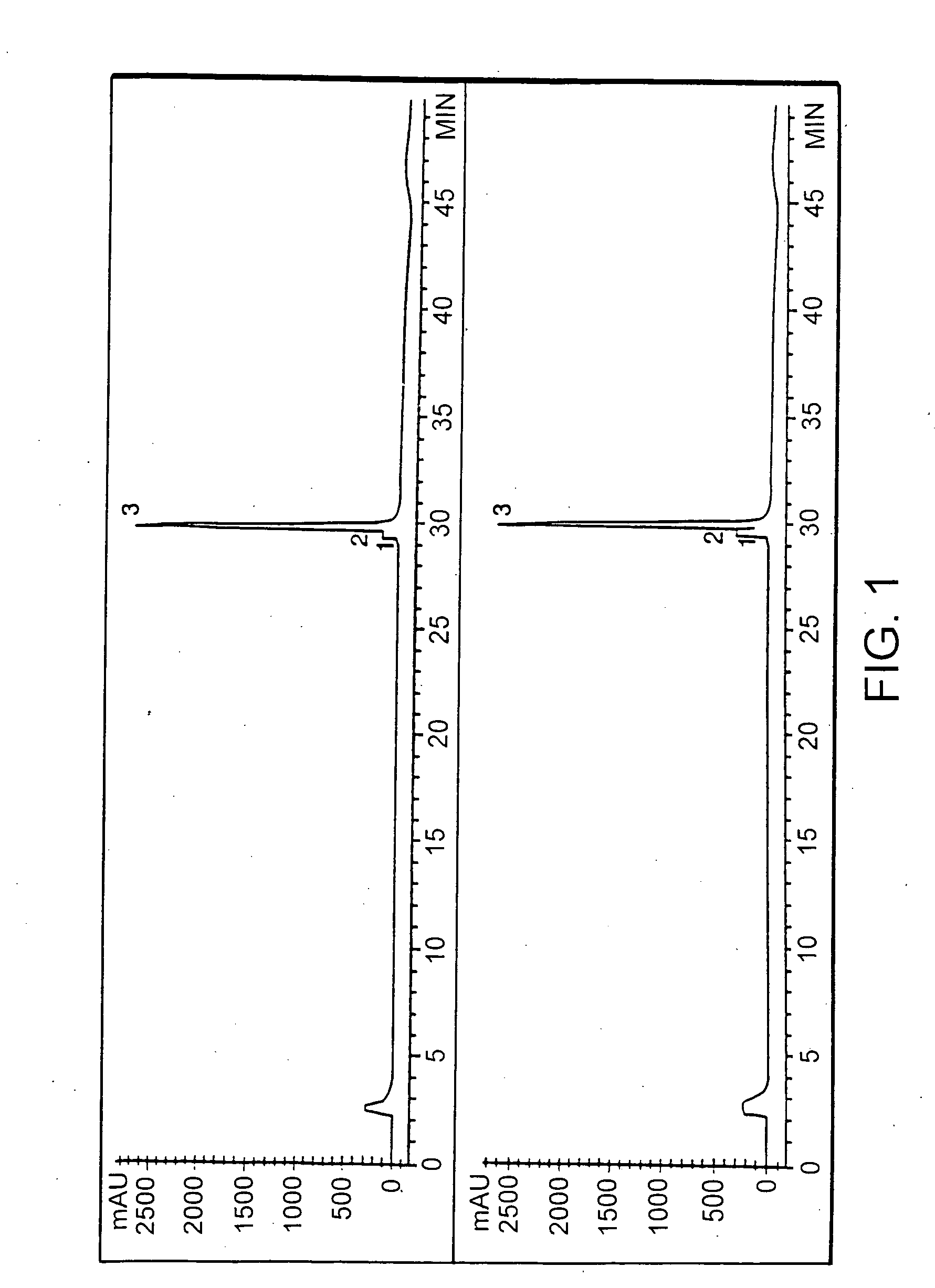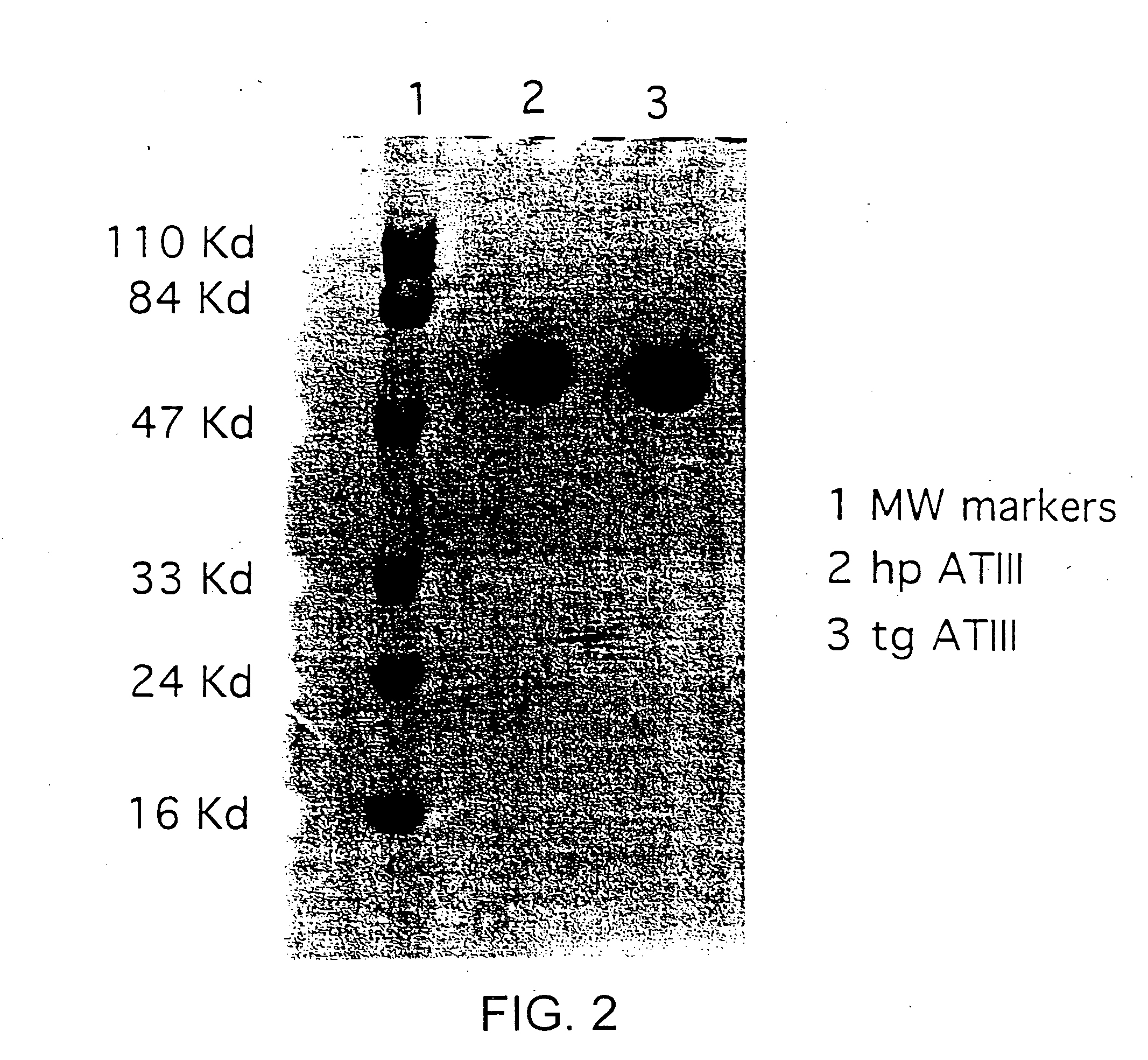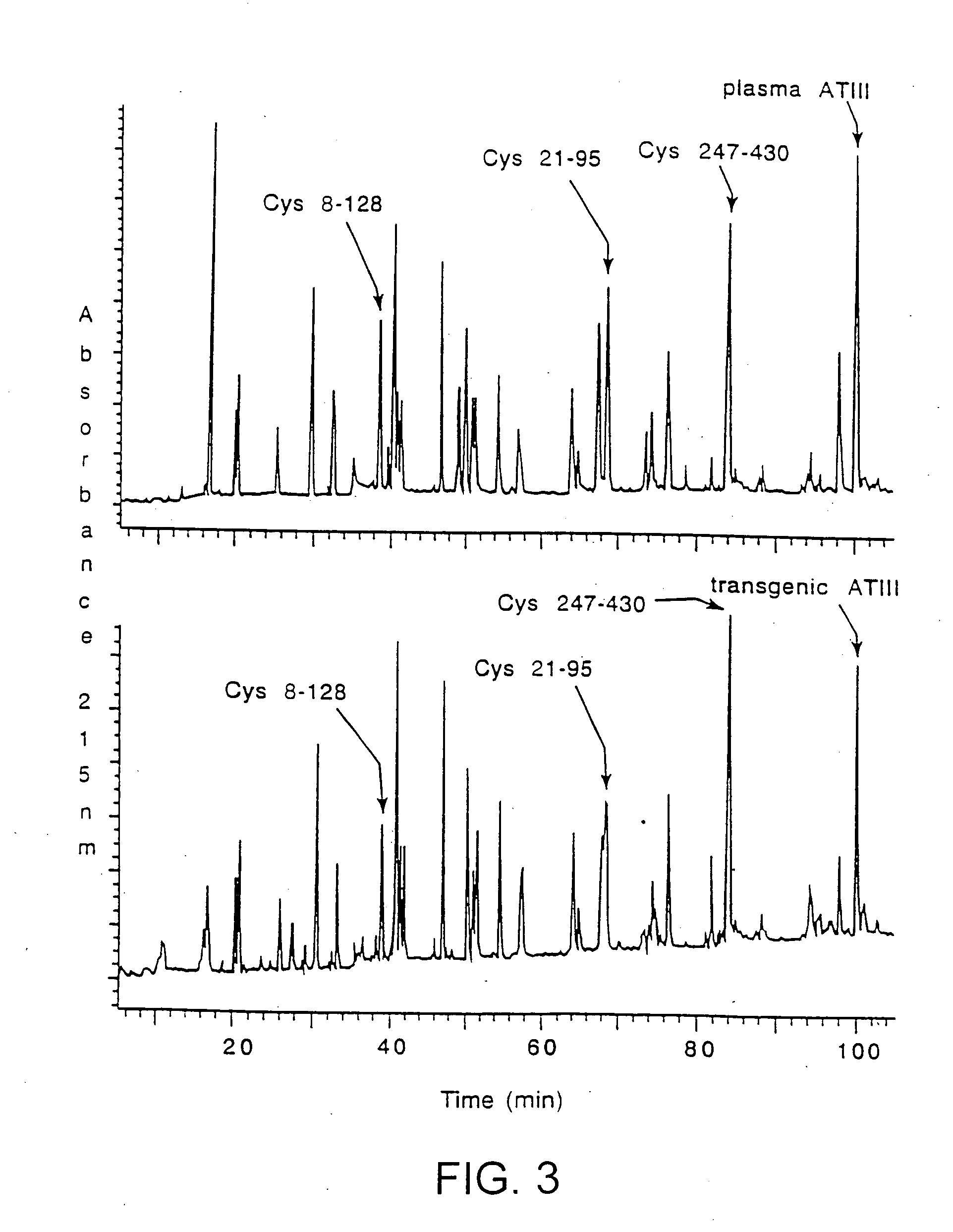Transgenically produced antithrombin III
a technology of antithrombin and transgene, which is applied in the direction of peptide/protein ingredients, peptide sources, drug compositions, etc., can solve the problems of difficult or expensive to produce protein in a functional form in the required quantity using conventional methods, and may be difficult or expensive to grow, etc., to achieve the effect of increasing the clearance ra
- Summary
- Abstract
- Description
- Claims
- Application Information
AI Technical Summary
Benefits of technology
Problems solved by technology
Method used
Image
Examples
Embodiment Construction
[0016]This invention is based upon the discovery that hATIII produced by the transgenic method of the present invention is structurally different than ATIII extracted from plasma (phATIII). The monosaccharide composition of the transgenically produced ATIII (tgATIII) differs in the composition and the quantity when compared to plasma derived ATIII. In particular, the glycosylation sites on the tgATIII vary considerably in contrast to phATIII which are all uniform.
EXEMPLIFICATION
Generation of the Gene Construct
[0017]A mammary gland-specific transgene was constructed by inserting the human Antithrombin III (hATIII) cDNA into the caprine beta casein gene (CSN2). The caprine beta casein gene was cloned as an 18.5 Kb fragment in a lambda EMBL3 vector (Roberts, et al., Gene., 1992. 121: p. 255-262). The 6.2 Kb promoter (including exon 1 and part of exon 2) was fused to the hATIII cDNA to direct high level mammary gland-specific expression. A 7.2 Kb 3′ flanking region (including part of ex...
PUM
| Property | Measurement | Unit |
|---|---|---|
| diameter | aaaaa | aaaaa |
| Concentration | aaaaa | aaaaa |
| Concentration | aaaaa | aaaaa |
Abstract
Description
Claims
Application Information
 Login to View More
Login to View More - R&D
- Intellectual Property
- Life Sciences
- Materials
- Tech Scout
- Unparalleled Data Quality
- Higher Quality Content
- 60% Fewer Hallucinations
Browse by: Latest US Patents, China's latest patents, Technical Efficacy Thesaurus, Application Domain, Technology Topic, Popular Technical Reports.
© 2025 PatSnap. All rights reserved.Legal|Privacy policy|Modern Slavery Act Transparency Statement|Sitemap|About US| Contact US: help@patsnap.com



